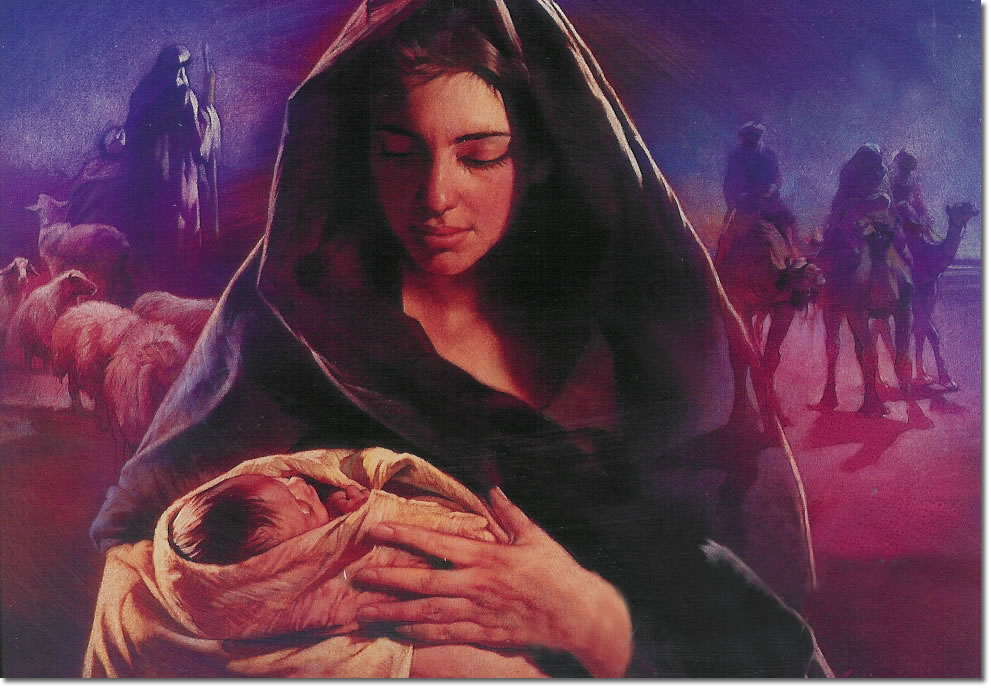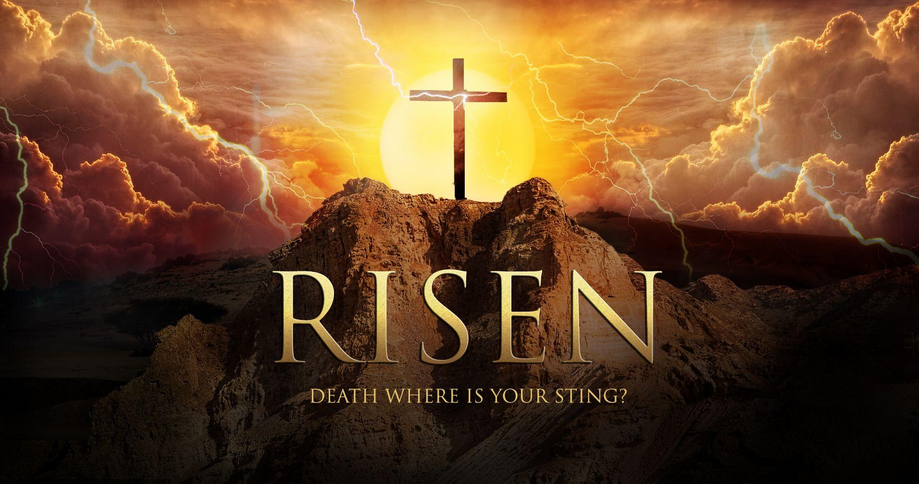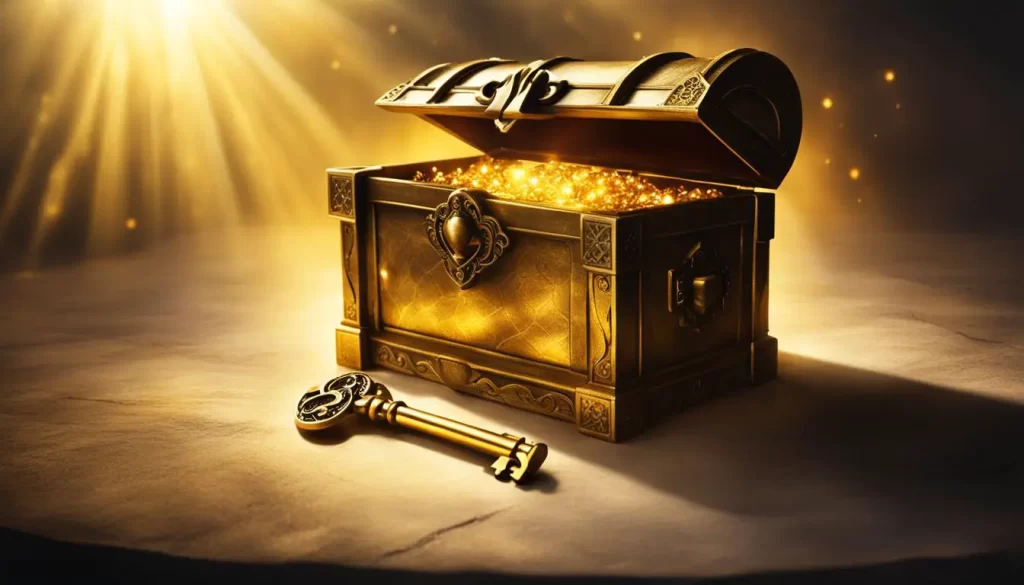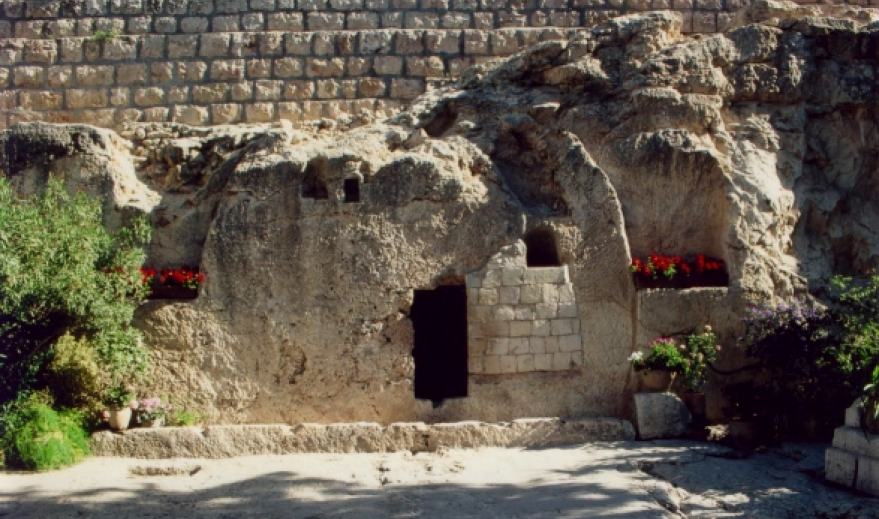The Birth of The True King
 Isaiah prophesied that a King would come who would reign like no other. Details of His reign are given: His birth; His ministry in ‘Galilee of the Gentiles’; His lineage, from the line of Jesse; His anointing to do God’s work. Anyone who doubts the validity of Christ’s claim to Kingship needs to look back to the accuracy of Isaiah’s predictions.
Isaiah prophesied that a King would come who would reign like no other. Details of His reign are given: His birth; His ministry in ‘Galilee of the Gentiles’; His lineage, from the line of Jesse; His anointing to do God’s work. Anyone who doubts the validity of Christ’s claim to Kingship needs to look back to the accuracy of Isaiah’s predictions.
For to us a Child is born, to us a Son is given; and the government shall be upon His shoulder, and His name shall be called Wonderful Counselor, Mighty God, Everlasting Father of Eternity, Prince of Peace. Of the increase of His government and of peace there shall be no end, upon the throne of David and over his kingdom, to establish it and to uphold it with justice and with righteousness from the [latter] time forth, even forevermore. The zeal of the Lord of hosts will perform this (Isaiah 9:6-7).
Therefore the Lord Himself shall give you a sign: Behold, the young woman who is unmarried and a virgin shall conceive and bear a son, and shall call his name Immanuel (God with us) (Isaiah 7:14).
In scripture, we find the word “Mashiah” which means “anointed one”. The term was applied to the High Priest (Leviticus 4:23); the King (2 Sam 1:14), and also prophets of God (Psalms 105:15). It speaks of these men being set apart by God for God, and with the power of God helping them. However, at a later date, we find Daniel predicting that after the rebuilding of the Temple in Jerusalem, which was destroyed by Nebuchadnezzar, a period of time would pass after which the Messiah (meaning Anointed one) would come (Daniel 9:25).
In this prophecy, he uses the word “Messiah” as a title. This caused the Jews to speak freely of the one to come as The ‘Messiah’. Scripture reveals that the one to come will be the supreme Anointed One. He will be the one who fulfils the offices of prophet, priest and king, which were only shadows that pointed to Him.
Biblical prophecy (including Messianic prophecy) is unique among all the religious books of the world. It covers a vast period of time and includes all the nations involved in the history of Israel. The prophecies reveal God as the only God of history.
He is the Master of all events and can work through both good and bad to bring about His purposes. One example of this perfect mastery of all events is seen in Micah’s prophecy foretelling the birth of Christ in Bethlehem. Micah went on to say that the King is going to come from the little village of Bethlehem:
But you, Bethlehem Ephratah, you are little to be among the clans of Judah; yet out of you shall One come forth for Me Who is to be Ruler in Israel, Whose goings forth (origins) have been from of old, from ancient days (eternity) (Micah 5:2).
Beth means ‘house’ and lehem means ‘bread’, so the name literally means ‘house of bread’. It was this little village that supplied corn to Jerusalem, as well as lambs for sacrifice. The above prophecy refers to Christ, as seen in Matthew 2:1
After Jesus was born in Bethlehem of Judea in the days of Herod the king, behold, wise men astrologers from the east came to Jerusalem, asking, Where is He Who has been born King of the Jews? For we have seen His star in the east at its rising and have come to worship Him.
When Herod the king heard this, he was troubled, and all Jerusalem with him. Herod conferred with the Jewish hierarchy about their prophecies to ascertain Bethlehem from Micah 5:2. The Jews and wise men would have been familiar with Daniel’s prophecy (9:25-26) and known the timing was upon them for the Messiah.
That it Might be Fulfilled
Matthew refers to the Old Testament more than any of the other Gospels. One of his favourite sayings is ‘that it might be fulfilled, which was spoken by the prophets’. This is seen in particular in Matthew’s birth narrative.
He takes a long time explaining why Jesus was born in Bethlehem–because the prophets had predicted that Bethlehem of Judaea would be the birthplace of the king. During the time of the Roman Empire, several special taxes were imposed. Under the rule of Caesar Augustus, one of these taxations was levied for years before the birth of Jesus. The Jewish people protested against this order, yet were overruled. However, this delayed the enforcement of this taxation order for four years, bringing us to the time of Jesus’ birth.
Under the order, Joseph and Mary were required to be present in Bethlehem (Luke 2:1-7), and so prophecy was fulfilled. Mary and Joseph later returned to Nazareth, thus fulfilling the Messianic prophecy that stated the Messiah would be called a Nazarene (Matthew 2:23).
Yet this would be crucially important for Jews wondering if this was the Messiah God had promised long ago. “Behold, the virgin shall become pregnant and give birth to a Son, and they shall call His name Emmanuel, which, when translated, means God with us (Matthew 1:23).
Matthew is keen for readers to understand that the prophets spoke of the birth to a virgin, the slaughter of the innocents, the flight into Egypt and the return to Galilee. The phrase ‘that it might be fulfilled, which was spoken by the prophets’ occurs 13 times in the story of Jesus’ birth, where Matthew quotes Micah, Hosea, Jeremiah and Isaiah.
So all the generations from Abraham to David are fourteen, from David to the Babylonian exile (deportation) fourteen generations, from the Babylonian exile to the Christ fourteen generations (Matthew 1:17). From the very beginning, Matthew focuses his readers’ attention on Christ’s ancestry in the royal line of David, describing how his birth fulfils prophecy and has the marks of God’s involvement, heralded by archangels and welcomed by an angelic choir. While Luke includes the shepherds, it is Matthew who records the worship of the child by the wise men from the east.
The Wise Men
Most people are familiar with the Wise Men who followed a star to Bethlehem. Whilst they have been commonly regarded as Gentiles, it is more likely that they were descendants of the Jews who had been left behind in Babylon after the Exile. Matthew records the arrival of the Magi with awe, using the word “behold” to express his wonder that influential “wise men” came from the East seeking Jesus.
The Greek term used is magi, not kings. Historically, the Magi were a powerful priestly caste from regions such as Persia, Media, Babylon, or Arabia. Though never kings themselves, they were extraordinarily wealthy and influential, so much so that ancient writers described them as “almost kings” and regarded them as king-makers whose approval could install or depose rulers.
The Magi were elite religious scholars, scientists, and political powerbrokers, renowned especially for their expertise in astronomy. Their immense authority explains why rulers feared them. The Roman emperor Nero, for example, panicked when Magi visited Rome and lavishly entertained them to secure their favour. This historical precedent explains King Herod’s terror when he learned that Magi were approaching Jerusalem seeking one “born King of the Jews.”
The biblical roots of the Magi likely trace back to Daniel, who rose to prominence in Babylon and was placed over the wise men. His prophecies were preserved and revered by the Magi for centuries, leading them to expect the birth of a great world ruler—the Messiah. This expectation was widespread in the ancient world, even among pagans, many of whom wrote about an impending golden age and deliverer.
They had remembered the prophecy of Balaam that a star would arise out of Israel to be the King of the Nations. I see Him, but not now; I behold Him, but He is not near. A Star shall come forth out of Jacob, and a Scepter shall rise out of Israel and shall crush all the corners of Moab and break down all the sons of Sheth…. (Numbers 24:17). So when the wise men or astrologers from the east saw His star in the east, they followed it. Their presence in Matthew’s birth account says much about the importance of Christ’s incarnation.
Interestingly, there will be signs in the sky because the sky responds to significant events on earth. This doesn’t mean that when the Wise Men followed the star, it proves astrology is all right. Astrology believes that the position of the stars influences a baby at the moment of birth, but at Bethlehem, it was the position of the baby that influenced the stars!
Notice Matthew 2:2 says that the Magi were saying, “…We have seen his star in the east….” As we have seen, Magi were experts at studying the constellations. And because of Daniel’s influential prophecies and the ability of this elite group to discover times and seasons based on Scripture that stayed with them from the time of the Jewish captivity in Babylon, the Magi believed the time for a long-awaited world leader to be born had finally come. When this amazing sign of “the star in the East” appeared in the heavens above, the Magi took it as the announcement that this event had indeed occurred.
When the Magi observed a remarkable sign in the heavens, they interpreted it—after careful study—as the fulfilment of these long-held prophecies. Though scholars have proposed astronomical explanations, the biblical account suggests a miraculous phenomenon that guided them directly to Jesus.
The journey from the East likely spanned 1,000–1,200 miles and took many months, explaining why the Magi arrived up to two years after Jesus’ birth. By then, Jesus was a young child. The Bible does not state how many Magi came, nor does it name them; later traditions suggesting three Magi arise from the three symbolic gifts but lack biblical certainty. In reality, the Magi would have travelled with massive caravans, servants, soldiers, and vast treasures—an arrival that would have caused great public commotion.
As they entered Jerusalem, the Magi repeatedly announced their purpose: to worship the newly born King of the Jews. Their declaration alarmed Herod and unsettled the city, as the presence of these powerful king-makers posed a direct threat to Herod’s rule. Yet Herod dared not confront them openly, knowing their influence and history.
In short, the Magi were not humble travellers but formidable figures whose arrival signalled that something momentous—and threatening to earthly power—had occurred: the birth of the true King.
The Birth of the True King
Luke was a doctor by profession – the apostle Paul refers to him as ‘the beloved physician’ when writing to the Colossian church. Because of his medical background, he was able to bring his considerable skill as a writer and physician to diligently search out and follow all things closely and trace accurately the course from the highest to minutest detail and record what actually took place, even when it was outside medical knowledge or ability.
The birth of Jesus, for example, is told from Mary’s angle. She made her life available to Jesus Christ, and she was willing to trust God’s plan for her life. Here was a young girl around 13-14 years old, who was approached by an angel, and he told her that she had found grace with God and she would become pregnant and give birth to a Messiah she would call His name Jesus (see Luke 1:30-32).
Here again, Matthew’s birth narrative says:
And her promised husband Joseph, being a just and upright man and not willing to expose her publicly and to shame and disgrace her, decided to repudiate and dismiss (divorce) her quietly and secretly. But as he was thinking this over, behold, an angel of the Lord appeared to him in a dream, saying, Joseph, descendant of David, do not be afraid to take Mary as your wife, for that which is conceived in her is of (from, out of) the Holy Spirit. She will bear a Son, and you shall call His name Jesus (the Greek form of the Hebrew Joshua), which means Savior, for He will save His people from their sins that is, prevent them from failing and missing the true end and scope of life, which is God (Matthew 1:19-21).
In first-century society, this would be a total disgrace! That’s why Joseph had decided to divorce her quietly and secretly. And yet, Mary basically says, Here am I. Do with me as you please.” Behold, I am the handmaiden of the Lord; let it be done according to what you have said (Luke 1:38).
Many times, we wonder what the will of God is for our lives. Let me suggest that you simply say, “Lord, I am willing to obey, even though I don’t completely understand what it is that You’re asking me to do.” That is what Mary did. She didn’t fully understand what the angel Gabriel was telling her, but she obeyed just the same. She took a leap of faith. This is the attitude God looks for in His servants: childlike faith and obedience.
Luke also gives further details of the virgin birth, Jesus’ circumcision, and mentions the swaddling clothes or diapers – all the kind of things a doctor would be interested in. Some doctors are sceptical about anything which is outside the natural, physical realm, but God used a doctor to report the supernatural!
Medicine had been developing for 400 years, and doctors received careful training. Luke needed to be observant, analytical and careful in his records – skills which he also uses in giving intimate details of the conception and delivery of Jesus Christ.
And this will be a sign for you by which you will recognize Him: you will find (after searching) a Baby wrapped in swaddling clothes and lying in a manger (Luke 2:12-13).
Luke also records the involvement of the shepherds in witnessing and broadcasting news of the birth of Jesus. He records that Mary and Joseph brought pigeons to the temple for sacrifice at the birth of Jesus. This was the cheapest possible sacrifice allowed under Levitical law (see Leviticus 12:1-4).
And when the time for their purification the mother’s purification and the Baby’s dedication came according to the Law of Moses, they brought Him up to Jerusalem to present Him to the Lord—As it is written in the Law of the Lord, Every firstborn male that opens the womb shall be set apart and dedicated and called holy to the Lord (Luke 2:22-23; see also Exodus 13: 1-2, 12; Numbers 8:17).
The greatest miracle that has ever taken place happened when our Lord Jesus Christ, Son of the Living God, left His throne in glory and chose to be born in a cave in Bethlehem. He could have been born in the most elegant palace on this planet, but instead, He was born in a stable in Bethlehem, which was cold and damp.
He could have had aristocratic parents who boasted of their status. He could have heard the finest clothes from the most exclusive shops. But He had none of that. Instead, Jesus chose to humble Himself and became poor that through His poverty we might become rich (2 Corinthians 8:9).
Our Saviour did not come as a Monarch draped in gold and silk, but as a baby wrapped in swaddling clothes. He went from the glory of God to a stable filled with animals. Someone has said that ‘history swings on the hinge of the door of a stable in Bethlehem’. Jesus took His place in a manger so that we might have a home in Heaven. So, we may summarise that a Christian is someone who has come to recognise these four features in one person: “Jesus Christ, his only Son, our Lord.”
First, His Humanity.
Jesus was a real human being who lived in our world. Very few doubt His historical existence. The name Jesus was given to Him at birth, and it is the name by which He is now world-famous. It was quite a common name at the time (there are others in the New Testament; see Colossians 4:11). In His own language, Hebrew, it is pronounced Yeshua, the same name as Joshua in the Old Testament, and it means “God saves.”
Second, His Royalty.
Christ is not His surname. It is not a name at all, but a title meaning “anointed one.” This title was applied in the Old Testament to prophets and priests, but supremely to kings. The chrism, or anointing with oil, was part of the coronation ceremony, just as it still is today in Westminster Abbey when British sovereigns are crowned. The Greek Christus is equivalent to the Hebrew meschiah (English Messiah).
Jesus was born and died as “King of the Jews” (Matthew 2:2; 27:37). He had royal blood in His veins, being a physical descendant of King David through His mother (Luke 3) and a legal descendant through His stepfather (Matthew 1). In this sense, it might be more meaningful to call Him King Jesus than Jesus Christ. Above all, this title ties Him to the Jewish people, which is why their Scriptures (which they call the Ta’anach, and we call the Old Testament) are part of the Christian Bible.
Third, His Divinity.
God was His Father. He always was and always will be. The word only points to a unique relationship between them. Jesus was the only one of His kind, the only “natural” (that is, begotten) Son of God. Human beings may join this family, but only by adoption. Nor should we imagine that God was once alone and later produced a Son like Himself. The Father–Son relationship was not the result of sexual intercourse, as Muslims mistakenly believe; it was eternal—always there. That is why Christians can say, “God is love.” He has always existed as a person in a relationship. Everything true of the Father could be seen in His Son (John 14:9; Colossians 1:19).
Fourth, His Authority.
The earliest and shortest Christian “creed” consisted of just three words: “Jesus is Lord” (1 Corinthians 12:3). To say this publicly later came at great cost, since the Roman emperor claimed that title for himself and regarded it as a divine prerogative. To proclaim Jesus as Lord was therefore to invite a charge of treason, punishable by death. This title was given to Jesus after His crucifixion and resurrection, when He was enthroned in heaven with supreme power and authority over the entire universe (Matthew 28:18; Philippians 2:9–11). By saying “our Lord,” Christians acknowledge His headship over them, both individually and collectively.
These four attributes: His humanity, royalty, divinity, and authority, form the bedrock foundation for everything else we know about Him.
As you enjoy your Christmas today with your loved ones, take time to contemplate what Christmas is really about. It was the day Christ Jesus came into the world to bring us salvation, the most wonderful gift anyone could ever have-and it’s completely free!
For God so greatly loved and dearly prized the world that He even gave up His only begotten (unique) Son, so that whoever believes in (trusts in, clings to, relies on) Him shall not perish (come to destruction, be lost) but have eternal (everlasting) life.
For God did not send the Son into the world in order to judge (to reject, to condemn, to pass sentence on) the world, but that the world might find salvation and be made safe and sound through Him (John 3:16-17 AMP).
The most wonderful and most powerful miracle opened the way for the miracle of rebirth –when you are “born again” When you are “born again”- your whole life changes because, just as Jesus came into the world, he comes into our hearts. He came not to condemn us, but to save us from eternal damnation.
Have a wonderful and blessed Christmas!

 The Scripture tells us that if the blood of an acceptable sacrifice does not redeem a man, he is most certainly going to spend eternity in hell. We have sugar-coated the cross, but it must not have been a delightful thing to see a man die on the cross outside the hills of Jerusalem.
The Scripture tells us that if the blood of an acceptable sacrifice does not redeem a man, he is most certainly going to spend eternity in hell. We have sugar-coated the cross, but it must not have been a delightful thing to see a man die on the cross outside the hills of Jerusalem.

 In Old Testament times most, people were poor and lived at a subsistence level. Thus, leaving an inheritance (normally land) was vital to enable the following generation(s) to continue farming and raise livestock, without getting enslaved. The distribution of the inheritance was executed like this: usually, daughters did not receive land, for they commonly lived with their parents until they married, after which they benefitted from their husband’s land; but all sons received an equal portion of land except the firstborn son who got double:
In Old Testament times most, people were poor and lived at a subsistence level. Thus, leaving an inheritance (normally land) was vital to enable the following generation(s) to continue farming and raise livestock, without getting enslaved. The distribution of the inheritance was executed like this: usually, daughters did not receive land, for they commonly lived with their parents until they married, after which they benefitted from their husband’s land; but all sons received an equal portion of land except the firstborn son who got double: A story is told of a fire in Scotland that destroyed the farm. In the aftermath of the fire, a farmer went into the barn to assess and make sense of what had happened. In the process, a farmer kicked one of the dead chickens and under the chicken wings were six live chickens the mother died protecting.
A story is told of a fire in Scotland that destroyed the farm. In the aftermath of the fire, a farmer went into the barn to assess and make sense of what had happened. In the process, a farmer kicked one of the dead chickens and under the chicken wings were six live chickens the mother died protecting. There is no specific instruction to celebrate or observe Easter in the New Testament. Easter is not about “Easter eggs” or wearing pastels. All these are pagan practices.
There is no specific instruction to celebrate or observe Easter in the New Testament. Easter is not about “Easter eggs” or wearing pastels. All these are pagan practices. During this weekend, Christians around the world will be celebrating the death and resurrection of Jesus Christ. For the Jews, they will be celebrating Passover, which commemorates Israel’s escape from Egypt when the blood of a lamb was painted on their door frames and saved their firstborn sons from death.
During this weekend, Christians around the world will be celebrating the death and resurrection of Jesus Christ. For the Jews, they will be celebrating Passover, which commemorates Israel’s escape from Egypt when the blood of a lamb was painted on their door frames and saved their firstborn sons from death. Daniel Kolenda in his book
Daniel Kolenda in his book